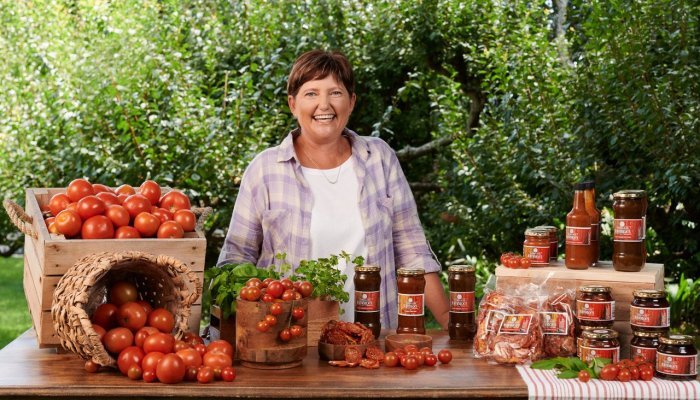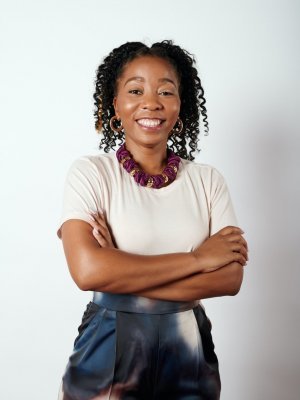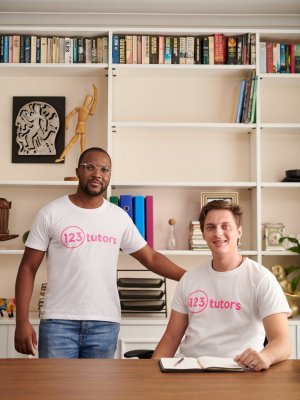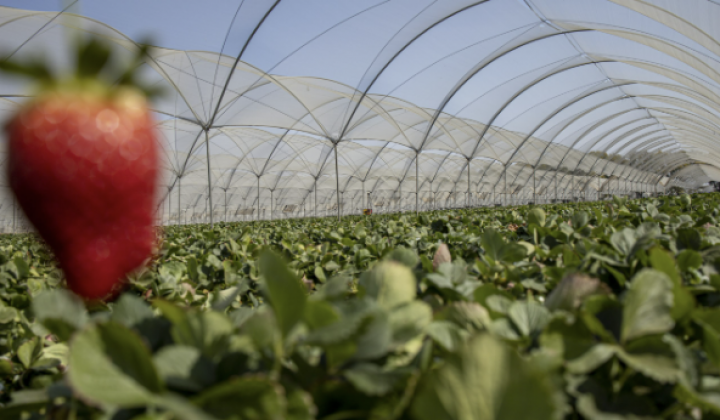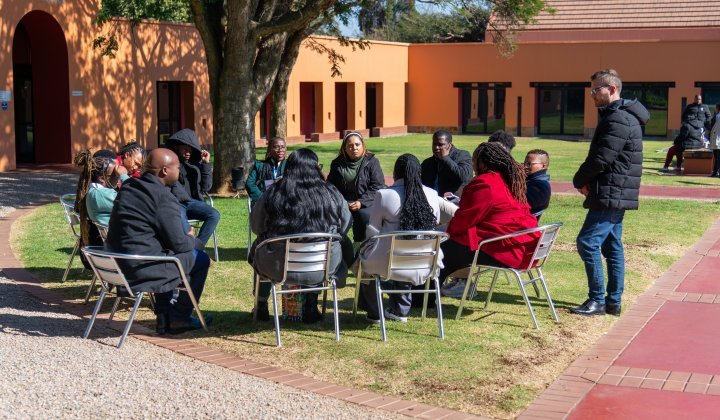Sometimes a marketing campaign or a brand intervention finds its own momentum and defies the warnings of strategists that public attention wanes fast and fresh material is always needed. Sometimes an idea is so appealing that partners and the public call out for more. This was the case with Hollard Insurance’s Big Ads for Small Business campaign, which debuted in February 2021.
A bold idea to share Hollard advertising space with 12 carefully selected small businesses during the worst of the Covid-19 lockdown, each small business benefitted from tailored advertising exposure to the tune of R1 million per business across billboards, TV, radio, print, social and digital media, as well as bus shelters, on street poles and branded motorbikes.
A measurable return on investment for the small businesses was critical from the beginning. Along the way, Hollard boosted its own brand through the association and the goodwill spawned by the positive campaign. “It’s been good for us as well, not just the businesses,” admits Warwick Bloom, group marketing: South Africa at Hollard Insurance. “We all get prouder of it every day. It’s been an amazing campaign to work on.”
According to Hollard, the eventual advertising value equivalent (the monetary value assigned to editorial press coverage) for the campaign totalled R10.6 million, garnering more than 120 million impressions on digital media and eight million video views. Furthermore, based on the company’s annual brand health tracking research undertaken in June 2021, the likelihood of considering Hollard as an insurance provider compared to competitors improved when potential clients saw a Big Ads for Small Business advert. This resulted in Hollard jumping in the industry consideration rankings from 10th to fourth place.
In August of the same year, GIBS held an Executive MBA session on the success and strategy behind the shared-value marketing approach, which was extended into a 12-month campaign from the envisaged six-month run. The session was conceptualised by Abdullah Verachia and Dr. Manoj Chiba, who were writing a case study on the campaign. The campaign and the Executive MBA session were subsequently covered by Acumen in an article headlined A Big Boost for Small Business.
That was supposed to be that…
Big Ads II
That was before the sub-Saharan African TV platform, DStv, approached Hollard. DStv came on board to keep the campaign alive for a further six months.
Bloom shares that the plan was never to extend the campaign. “We were going into our new ChangeMaker campaign and then DStv approached us and we thought it was a great way to continue the work we had done in a slightly less tailored way,” he explains.
While the format of the advertising coverage was adapted to suit the DStv format, necessitating that the three new companies included should be sufficiently established to benefit from and service growth stemming from a national advertising intervention, the heart of the 2022 campaign is still the human-interest stories of the small businesses being featured – stories which continue to capture the South African imagination.
Touching on the public’s response to just one of the newcomers, Anya Fourie from Timeless Tomatoes, Bloom says that “the coverage has been amazing from a PR perspective; the media has really lapped it up”. And that’s the point, keeping Hollard in the background and letting small businesses like 123tutors, Ambani Africa, Koni Wines and Busanimen Studios take centre stage.
**
New kids on the block
As with the 2021 Big Ads for Small Business campaign, finding the right small businesses to feature in the 2022 sequel was critical. Yes, the businesses would benefit from the injection of advertising, publicity and goodwill, but they also needed to handle a national hike in demand. Out of 248 applications, 10 companies were shortlisted before a final three joined the ranks of the existing alumni of 12 businesses.
As was the case in 2021, the three new businesses all showed great growth potential and, as stressed by Hollard chief marketing officer, Heidi Brauer, for changing lives for the better and “creating better futures”.
The three businesses featured in the 2022 campaign will each receive commercial airtime to the value of R1 million on DStv channels Mzansi Magic, kykNET and M-Net over two months, as well as social media exposure on the three channels. They are Timeless Tomatoes, Ambani Africa, and 123tutors.
Timeless Tomatoes
Affable tomato farmer, Anja Fourie, knew nothing about tomatoes when, in 2005, she started growing top-quality produce to supplement her income. What started from a small patch of land with just three drying racks on a farm outside Bethulie in the Free State now spans 48 racks over two hectares. Annually, Timeless Tomatoes produces between 120 and 150 tonnes of top-quality tomato products.
Fourie’s story aligns with Hollard’s purpose and focuses on creating jobs and sharing skills with her local community. The empowerment of women in the area is a particular focus area for Fourie, who has four women employees working in the processing factory, which processes sun-dried tomatoes, chutneys, jams, salad dressing and pesto. The company also supports local women by running a tomato micro-enterprise in the community.
“If I can improve someone else’s life or teach something to someone, I have achieved my goal,” says Fourie, who has already won several awards for her human-centric business, including the International Labour Organization (ILO) EnterPRIZE Job Creation Challenge Best Agribusiness in the Free State 2013 and the ILO’s Best Established Business in the Free State 2014.
Ambani Africa
An award-winning education technology company, Ambani Africa uses an app with interactive animations, augmented reality and games to make learning eight South African languages fun and engaging. Founded by Mukundi Lambani, who was named as one of the Mail & Guardian’s 200 Young South Africans to watch in 2020, Ambani walked away with the overall 2021 MTN Business App of the Year Award after winning three category awards for best South African solution, best gaming solution and best educational solution for three separate apps. It’s Lambani’s EdTech app that is receiving particular attention as a means of offering interactive mother-tongue education to learners.
As Lambani said of the options available to learn across the Ambani platform, “Whether you’re a young person who wants to learn isiZulu or Swahili, you can easily do that using the apps.”
123tutors
Another tech-enabled, education-focused offering was 123tutors. Founded in 2017 by University of Pretoria alumni Joseph Nyamariwata and Aaron Bornmann, 123tutors was created to offer a quick, easy and affordable way to connect parents and primary-school, high-school and university students with vetted tutors. By harnessing the power of technology, the founders streamlined the system to enable users to find the perfect tutor in just three steps across a range of needs, from driving or coding lessons to learning a musical instrument.
Nyamariwata, the company’s chief marketing officer, explains that the demand for tutoring services boomed during the Covid-19 pandemic, driving up demand for 123tutors’ services and swelling the ranks of the company’s searchable database of vetted tutors to more than 4,000. According to Nyamariwata, 123tutors has facilitated more than 10,000 hours of tutoring to date, with more than 3,000 of the reviewed lessons earning a ranking of four or five stars out of five.
Flashback
The first stage of the Hollard Big Ads for Small Business campaign saw 12 small businesses receiving R1 million in direct media investment and the benefits of an extensive PR media campaign to punt and grow their companies. Over more than a year, this exposure has translated into rands and cents value for the chosen 12. Here’s how they are doing now:
- African Accent, a spaza shop that delivers to other spazas, hired 20 new employees and saw the business grow by 40%. This compares to a 15% year-on-year growth the previous year.
- Full-service laundry company, All Things Laundry, saw revenue jump by 63% year-on-year. The company opened a new branch in Midrand, bought a new company vehicle and hired two new employees.
- The founder of executive apparel brand, Busanimen Studios, Nkululeko Mahlangu, made the Forbes Africa 30 under 30 list and is currently negotiating a new partnership and working on a proposal to open a bigger factory.
- Several new businesses became Ground One Coffee clients, including The Leonardo Hotel in Sandton, Brown Sugar at the Maponya Mall, Sugar Shack in Broadacres, and Duduza Hospitality in Pretoria.
- In addition to gaining new clients, hair products company, Haircelerate, launched a new shampoo and conditioner in April 2022.
- Personalised accessories company, Journey Leather, recently moved to their dream location in a large, converted barn.
- After clients saw their television advert, Koni Wines, a black-owned wine brand, received two export contracts for Namibia. Export orders from Botswana have been consistent, and owner Koni Maliehe is now working to secure Zambia as an export destination. The company reported a 22% hike in sales.
- Moja Chicken, a grilled chicken brand, grew its franchises from two (in Soweto and Mpumalanga) at the beginning of the campaign to 10 by January 2022. More stores are planned for De Aar in the Northern Cape and East London in the Eastern Cape.
- Landscaping firm, Ronewa Creations, landed two new estate contracts – one with 168 units and another with 198 units. Their staff complement has grown from 10 to 30 employees.
- School clothing company, SchoolHub, now receives between 30 and 50 orders daily and is focusing on growth in the Western Cape.
- Streetwear brand, Thesis Lifestyle, opened a new store in Protea Glen, Soweto, in March 2022, after closing its physical stores due to the July 2021 riots. Another store should be open by the end of 2022.
- THRASS, a phonetics education programme, has seen interest from the Department of Education to acquire the programme at GDE level. Miner Harmony Gold is now using THRASS for schools as part of its CSI programme, and Old Mutual has put owner Mojaki Finger on its panel of preferred suppliers.


